Moroccan Culture: A Food-and-Tradition Travel Tips for 2025
Each time one speaks about Moroccan culture, it leads one into a world of brilliant colors, freaky history, and warm reception. Morocco is situated in North Africa and is famous for its excellent mix of Arab, Berber, and French influences which have, over time, grown into this country’s interesting culture.
There is no better way to find out about Moroccan culture than by going through its food. Moroccan cuisine is nothing. But a culinary Morocco tour of fragrant spices, the freshest of ingredients, and ages-old kitchen traditions. In this post, let us lead ourselves through various aspects of Moroccan cuisine and the cultural traditions shaping it.
The Soul of Moroccan Culture and Cuisine
Food in Morocco epitomizes the rich history, geography, and cultural diversity of this land. Moroccan cuisine fuses flavors from the larger region, touching on Arab, Berber, Mediterranean, and Sub-Saharan Africa. Given the use of fresh ingredients, spices, and long-cooked dishes. Each Moroccan dish reaches into your soul with layers of flavors.
In fact, all these cuisines that have become synonymous with Moroccan cuisine are nothing but a few of the important traditions and customs passed on through generations. These are dishes, they form part of daily life shared between family gatherings, celebrations of religion, and street-side meals.
Traditional Moroccan Tagine and Couscous
No talk of food from Morocco can be complete without the mention of tagine-the nation’s most famous dish. A tagine, in reference to food, is the name for both a clay pot and the stew that is cooked inside it. The stew, slow-cooked with meats like lamb, chicken, or beef. Is usually combined with vegetables and dried fruits, majorly apricots, flavored with cumin, saffron, and cinnamon, among others. The result is a dish bursting with deep, complex flavors that show food in Morocco at its best.
But the second pillar of Moroccan cuisine is couscous: a steamed semolina dish, generally served with vegetables and meat. Also traditionally prepared every Friday in Morocco. It is one way of commemorating this day of the week when families are reunited with one another in feasts. Most Moroccan families consider couscous as a sign of family bonding; thus, these are lovingly and carefully prepared.
Moroccan Pastries and Desserts: The Sweet Finishing Touch to the Meal
The sweets form an indispensable part of any conventional meal in Morocco. Most Moroccan pastries are heavily packed with almonds, honey, and butter. Such as baklava and seffa. Mint tea, being the national drink of Morocco, is often accompanied by these sweet treats. Traditions and customs have made mint tea so much more than a drink in Morocco. It is one that shows hospitality and, therefore, is offered to any guest as a sign of welcome and friendship.
Culture and Traditions of Morocco
Morocco is a country consisting of a mix of influences from its Arab, Berber, and European heritage. Moroccan culture and traditions are steeped in family values, hospitality, and respect for tradition. It is not only a fusion in the food, but even in how Moroccans live their daily lives.
There is a variety of customs and traditions throughout Morocco. Though some customs and traditions are followed in general throughout the country. The Moroccans are a very hospitable people, and visitors to Morocco may well find themselves being invited to enter a home. Food, especially tagine and couscous, is a method of developing good ties and friendships. Values attached to it are those of generosity, amity, and social bonding in general.
One of the most highly developed cultural traditions in Morocco is in relation to Eid al-Fitr, which occurs at the end of Ramadan; much time is devoted to feasting with the family. Including traditional Moroccan dishes such as lamb with prunes and pastilla-a pastry filled with pigeon or chicken-and sweets. Another major holiday, that of Eid al-Adha, uniformly follows this pattern of festivity and feasting with others in order to share in the blessings of the year.
Markets and Street Food: Their Place in Moroccan Culture
Food in Morocco is not just something to fill the belly; it’s an experience. Every city-for instance. Marrakech, Fez, Casablanca-are filled with their own souks, or markets, full of spices, fresh produce, and street foods of every kind.
To walk through those markets is to pass through a living museum of Moroccan life. Brightly colored, intoxicatingly scented, with murmurs of sound-all merge in a haze to give way to daily reality and attach the occupants of this land to their food.
Food culture in Morocco would not be complete without street foods. From snails in broth down to bastilla, a pastry filled with meat and spice, the food in Morocco offers delicious variety for every palate.
Moroccan culture dictates that no meal should be hurried but shared with good company and enjoyed with others. Shared dining is thus part of the culture that bonds people in Morocco from comfortable homes to the busiest street corners.
Food as Gateway to Moroccan Culture
Food is one of the most vital keys to understanding culture, history, or values concerning whoever is interested in Morocco. Traditional dishes that people in Morocco loved reflected centuries of cultural exchange and adaptation whereby every single bite was allowed to taste its rich past.
Communion eating has been paying respect to Moroccan culture and traditions through the food itself, gathering people, celebration, and expression of love and respect.
If what one is after is to indulge fully in the culture of Morocco, then perhaps one of the best ways to do this would be to take a gastronomical tour through bustling markets, street food stalls, and home-cooked meals. From popular tagine dishes to sweet temptations like baklava, Moroccan cuisine is bound to be an unforgettable ride for your senses.
Embark on a Morocco Desert Tour and Cultural Journey
Get ready for a lifetime Morocco desert tour and explore the Sahara with its huge dunes and fantastic landscapes.
From an adventurous Marrakech desert tour to a journey through traditional Berber villages-on a Morocco desert trip. You will not only be overwhelmed by the beauty of Morocco’s deserts but actually live the vivid culture of Morocco.
You are going to taste typical Moroccan dishes, tagine, and couscous, and learn some interesting customs of this country. The magic of the dunes would be merged with flavors and hospitality typical of Morocco to give every way a special adventure.
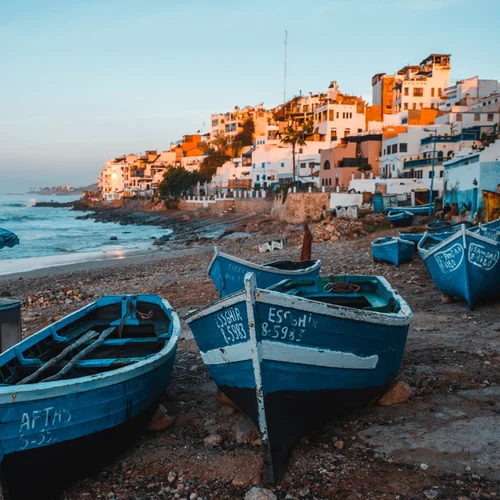



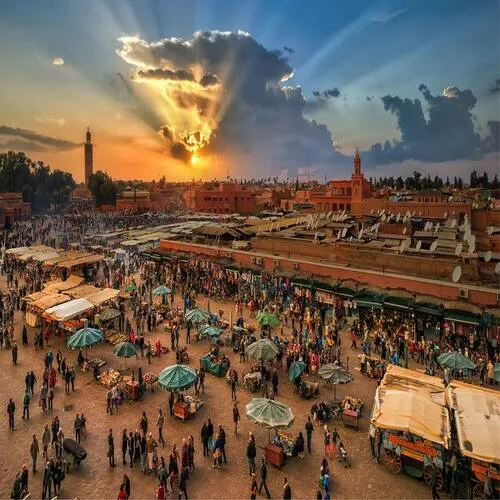
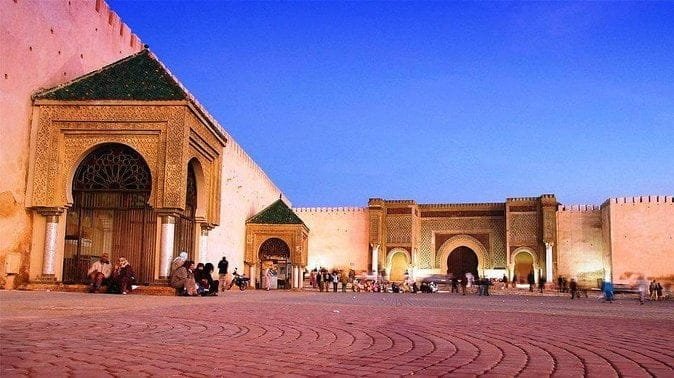
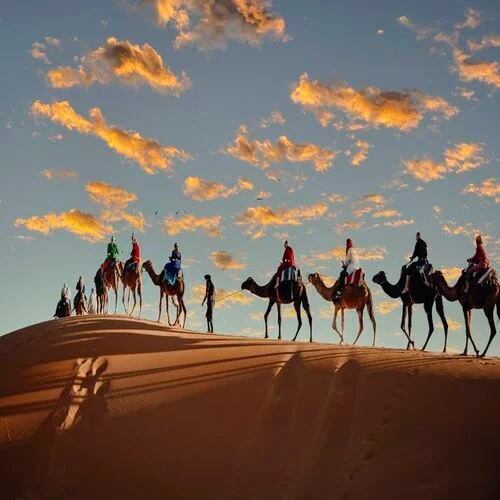
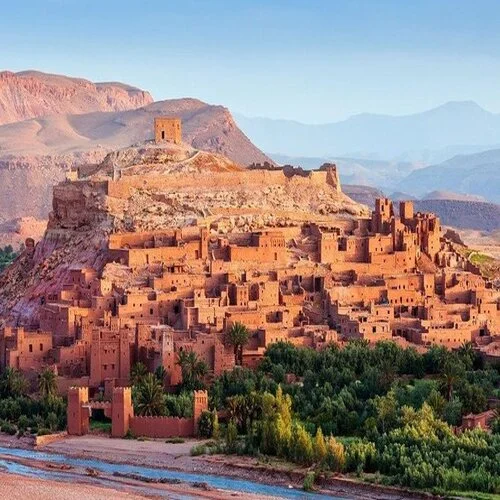
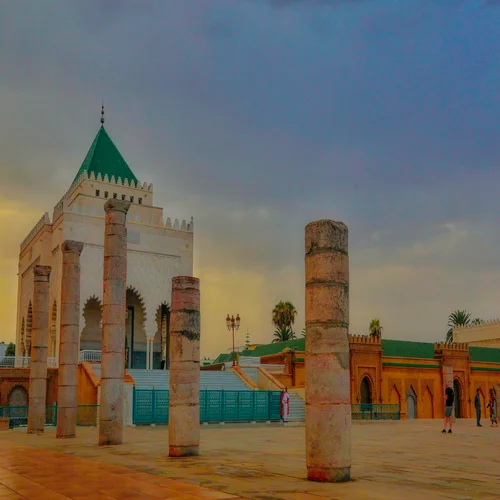


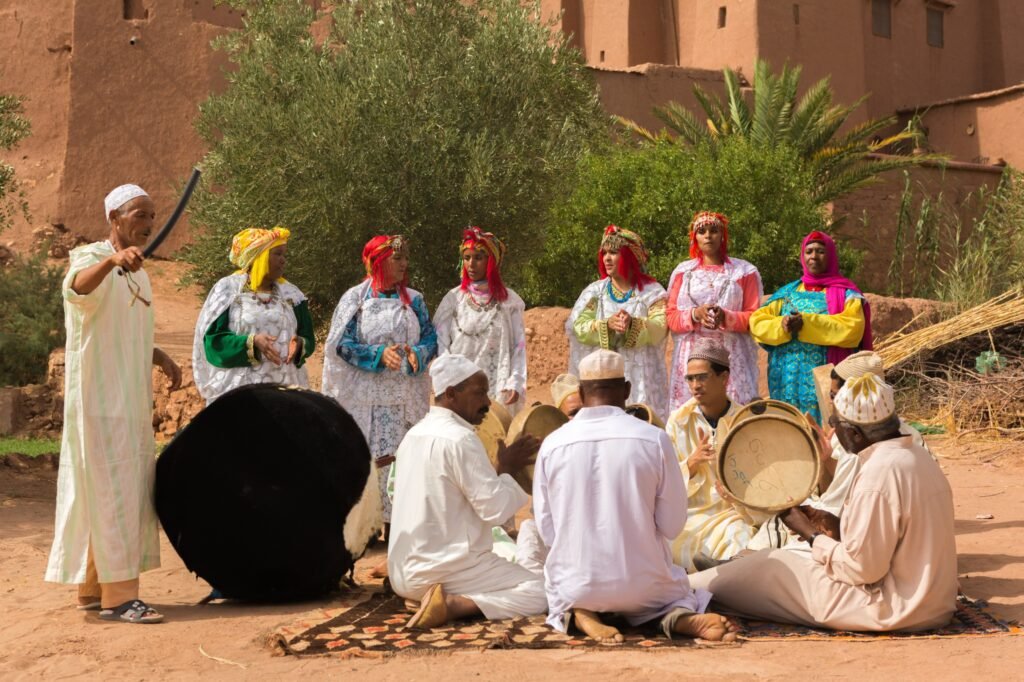








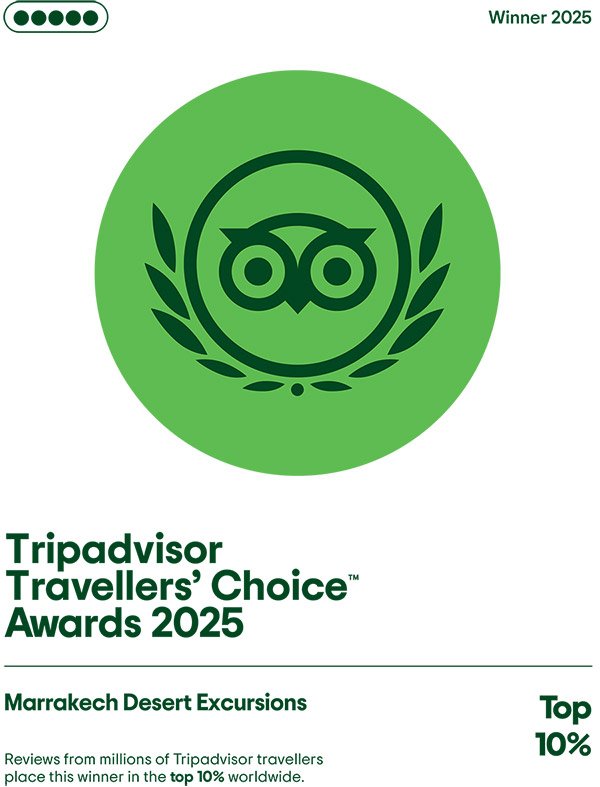
1 Comment
Visiting Morocco for the first time: A Complete Guide 2025
March 7, 2025 at 2:21 am[…] is another cultural and historical city, Fes. Fes displays Moroccan culture in the form of its ancient monuments and traditional medina. Go to the tanneries, which are […]